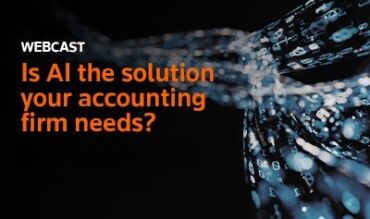Shifting demographics, changes in consumer behavior, a dynamic tax and regulatory environment, technology, and a multitude of other factors are having a profound impact on the future of accounting. That impact means an unprecedented rate of change.
We’ve recently talked about the future of accounting from the relationship perspective as well as how to build the next gen CPA firm. This post will look at some of the factors driving those dynamics, and how you might adjust and reform how you do business. Do those factors offer you an opportunity? Definitely. Is changing how you do business to adapt to those changes a necessity? Quite possibly.
10,000 baby boomers will turn 65 every day for the next 10 years
Let that sink in.
As Boomers transition to a new phase of life, they will be looking for more than tax preparation (if they aren’t already). They will be facing a whole range of new issues, including retirement planning, wealth transfer and estate planning, Social Security planning, health care decisions, and more. All of these have tax implications, but they all also require a more comprehensive and holistic approach to planning. This planning could also include ensuring that they have in place a health care directive, a durable power of attorney, and even a will. You can be the both their catalyst and their guide in make sure these usually easy-to-execute but hard-to-discuss documents are in place. It is important to them, and to their families and loved ones. Being their guide in these areas create strong peer and inter-generational connections.
A survey by the Insured Retirement Institute found that 45% of Boomers have zero retirement savings. Of those that do, more than half have less than $250,000. They may be less worried about having someone do their taxes in retirement than they are about having adequate retirement income at all. This is especially true as longevity is an increasingly important factor in their financial planning.
As they enter this phase of their lives, Boomers are facing an increasingly complex set of circumstances. You can be the trusted professional to make sure they receive the services, resources, and holistic, forward-thinking advice that they are looking for and that they need.
Millennials want (and need) your strategic advice
When it comes to financial and business planning, Millennials seem to be a misunderstood generation. They are not all independent mavericks, looking to rely on their own instincts when it comes to these issues. In fact, according to a study done by Guardian, “Yes, millennials value tech-driven solutions and dashboards in their financial planning but they also want the face-to-face advisor experience. What’s more, texting and social media trail far behind as preferred methods for advice. As for education? Technology, namely social media, facilitates learning and researching products and services; it does not replace an in-person learning environment.” In other words, even the digiterati are looking for the human touch in financial planning and advisory services. This is the true future of accounting.
According to that same study, the four motivators for Millennials when it comes to planning are:
- Parents,
- Passion,
- Planning, and
- Priorities.
That means that addressing their concerns requires a multi-disciplinary and a multi-generational approach.
As Millennials continue to move through along the generational timeline, they will only become more reliant on professional advice and guidance. The study goes on to say, “What sets an advisor apart in the eyes of a Millennial? Trustworthiness, knowledge, experience, listening skills, and understanding the Millennial’s financial position are important traits.”
In addition to the changing needs of Baby Boomers, Millennials are also looking to you for guidance. By identifying and connecting with their needs, you can begin to secure their trust, and the trust of their peers, as well. In fact, the Legg Mason global investment survey for 2018 revealed some surprise findings with 70 percent of Millennials opting to choose an advisor over robo-advisors.
Technology is your friend
Your accounting and advisory business is built on trust and enduring personal relationships with your clients, as it should be. You’ve nurtured relationships that, along with referrals, have helped to build your business. At the same time, technology is having a profound effect on how both you and your clients do business. But properly used, technology is not an obstacle between you and your clients: it is an enabler that leads to better relationships with them, and more relationships with others.
Technology impacts not only how you do business with clients, but how you conduct and manage your business operations internally. It not only improves how you do business, but it is something your clients and prospects have come to expect.
Implementing new technology, when done strategically, is an investment, not an expense. Here are a few things to keep in mind regarding technology.
- Let your clients and prospects know that you are serious about digital technology and your online presence. Keep your site current. Start a blog and keep it up to date with new information. Engage in social media. Meet your clients where they expect to find you.
- Ensure that your clients have real-time access to their accounts. Implement tools that make it easy for them to maintain their accounts online, for example, designating and changing beneficiaries, viewing their account details, updating their contact information, and other essential functions.
- Make yourself and your staff digitally accessible and visible. Use online chat, website FAQs, email, Facebook, Twitter, and other digital venues. But don’t extend yourself to channels where you can’t keep your presence current or if you can’t be responsive. Start slow and establish credibility, step by step.
- While you’re at it, don’t forget to implement the appropriate technology to streamline internal workflows and processes. Adopt a comprehensive platform that integrates customer relationship management, accounting, prospecting, time management, billing, scheduling, and other essential functions.
Is reforming your firm in the new advisory structure an opportunity or a necessity?
It may depend on your perspective, but perhaps a little of both.
What it comes down to is what type of practice you want to have. What kind of service do you want to provide, what type of relationships do you want to have, and, in the end, what impact do you want to have on the lives of your clients and their families?
Now is the time to step up and provide them with the advisory services, and sense of security, that they need.
Do you embody the Future CPA?
Building the accounting firm of the future starts with changing your mindset. Your clients and your prospects expect more from you. Reform your accounting business to exceed those expectations. Take the first step by reading our new white paper, The Future CPA: Make Your Practice The Accounting Firm of the Future. You’ll learn about the seismic changes affecting your profession, along with a roadmap to help you navigate them.







